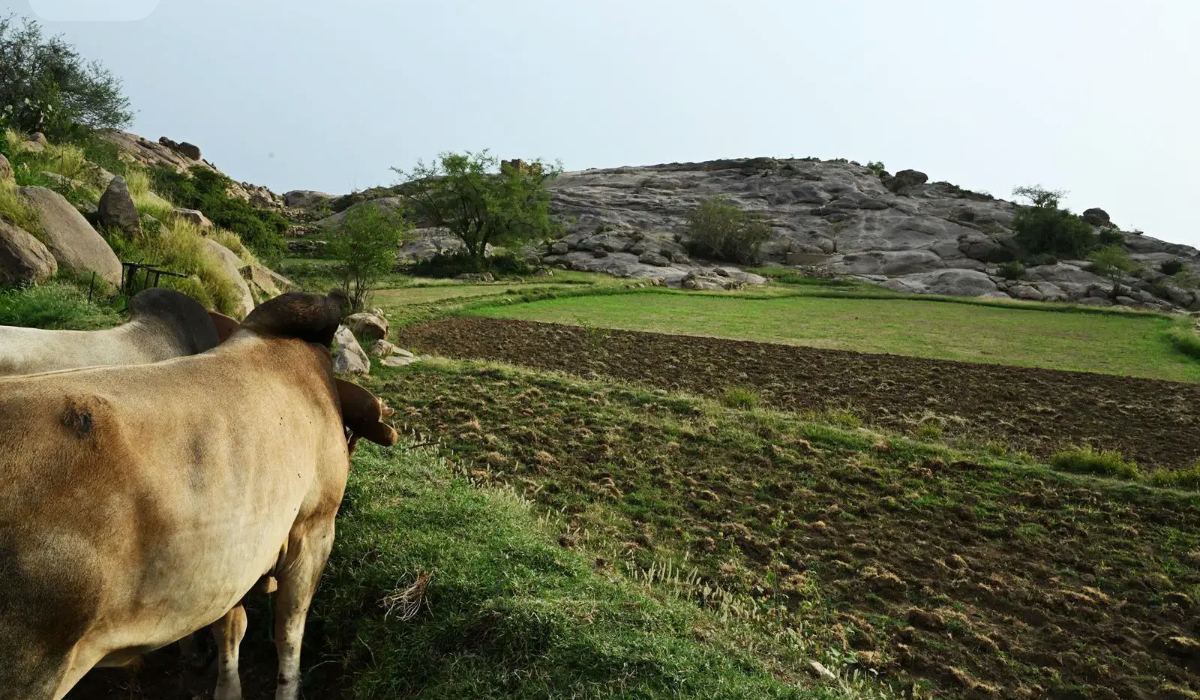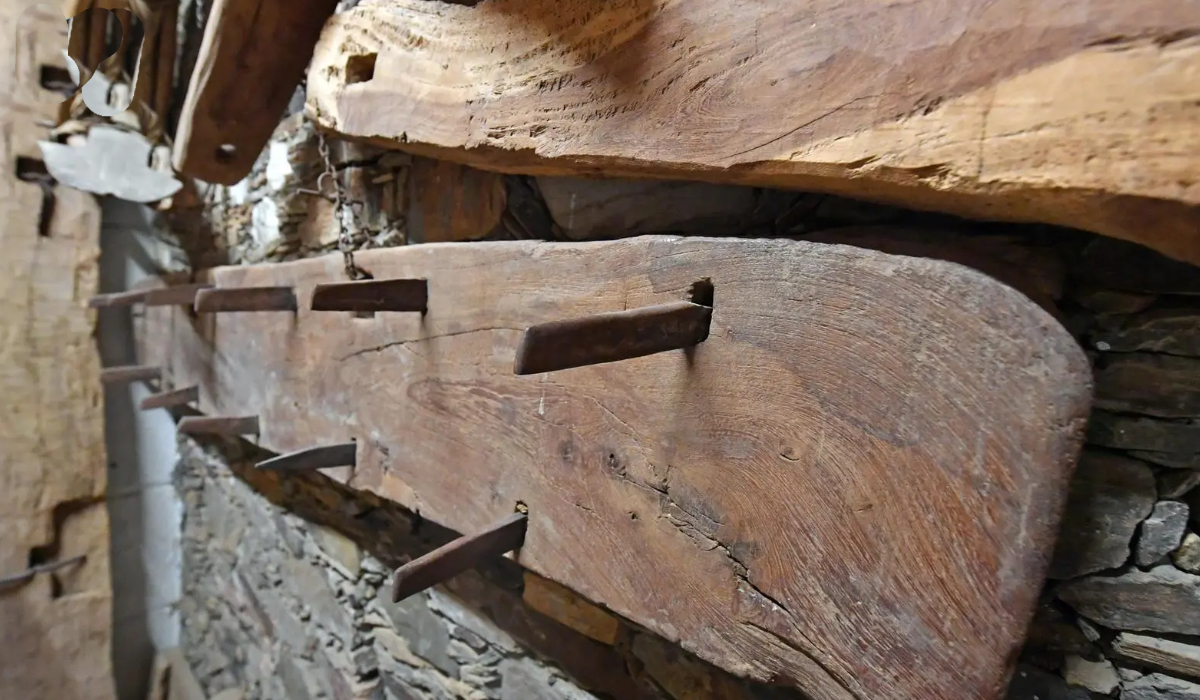RIYADH: Faisal Sultan, vice president and managing director of Lucid Middle East, is confident about the company’s trajectory and its growing presence in Saudi Arabia — a nation eager to establish itself as a key player in the global electric vehicle (EV) market.
Lucid Motors has had a transformative year despite a leadership change following Peter Rawlinson’s departure as CEO after 12 years in the post. Appearing on the Arab News current affairs program “Frankly Speaking,” Sultan said the firm has been left on a strong footing.
“What Lucid is today is because of him,” Sultan told “Frankly Speaking” host Katie Jensen. “The company is in a growth stage and therefore Peter decided to hand it over to the team that he has established to take it forward.”
Lucid, a pioneering EV manufacturer headquartered in the US, has set ambitious goals for its expansion in the Middle East, particularly in Saudi Arabia.
Backed by the Saudi Public Investment Fund (PIF), which holds a significant stake in the company, Lucid is spearheading the development of the Kingdom’s first EV manufacturing facility.
The firm’s assembly plant in Jeddah’s King Abdullah Economic City, which opened in September 2023, is already operational. Construction is underway for a full-scale factory, expected to be completed by the end of 2026.
“I’m very proud of the team, what we’ve been able to accomplish in Saudi Arabia — the first-ever international automotive manufacturing plant in the Kingdom,” said Sultan.
“We are definitely going to move and expand on that. We’re building a complete build unit factory now after the semi-knocked-down assembly factory, and that is currently under construction. It’s on time and it’s going to be completed, as previously stated, by the end of next year.
“It will have a capacity of 150,000 and we’ll start producing some cars in early 2027 from there for global consumption.”

Faisal Sultan, vice president and managing director (Middle East) of Lucid Group, spoke to ‘Frankly Speaking’ host Katie Jensen on a wide range of topics related to sustainable mobility. (AN Photo)
Lucid Motors has joined the “Made in Saudi” program, becoming the first global automotive company to do so, allowing it to use the 'Saudi Made' logo on its products, signifying quality and national pride, and reflecting the Kingdom’s commitment to becoming a leader in innovative manufacturing.
“The ‘Made in Saudi’ badge is a very prestigious thing,” said Sultan. “And it’s a really emotional thing for our teammates out of Saudi Arabia because they feel very proud to be a part of history and to be the first automotive manufacturer that can say that we have a Saudi-made vehicle, which is now being exported to other countries.
“Even the public has perceived it as a medal.”
Saudi Arabia’s Vision 2030 economic diversification strategy places great emphasis on sustainability and clean energy, with the aim of electrifying 30 percent of vehicles on its roads by the end of the decade.
Sultan believes this goal is attainable, given the steady increase in EV adoption and the government’s strong policy support.
“Our estimates are, basically, about 6 to 7 percent of vehicles that are being sold in the country are already electric vehicles,” he said.
“But I think that’s going to grow to 30 percent because of initiatives like the Saudi Green Initiative that really puts in the drive, the motivation, the policies, all of them coming together.”
More can be done, however, to boost the uptake of EVs.
“One of the biggest challenges when you talk about EV adoption is the infrastructure,” said Sultan. “And if the infrastructure is not there, it’s not going to happen. So we’re working with many companies, many partnerships that Lucid has. We’re working with the government entities to make sure that the chargers are there.”
Lucid’s vehicles are often compared to other luxury EVs, particularly Elon Musk’s Tesla range. However, Sultan is keen to clarify that Lucid is operating in a different league.

Lucid, a pioneering EV manufacturer headquartered in the US, has set ambitious goals for its expansion in the Middle East, particularly in Saudi Arabia. (Supplied)
“We don’t really consider Tesla as our main competitor,” he said. “Because if you look at a Lucid’s interior, and you look at the offerings that we have, how luxurious the car is, Tesla doesn’t produce a car like that.
“They do have a technological electric vehicle but that is really not the segment. Now people do take that misconception and try to compare it. But it’s an upgrade for a Model S person to come into a Lucid Air. They’re upgrading.”
Sultan says he is not concerned about Tesla entering the Saudi market, pointing to the healthy competition that already exists between other EV brands.
“There’s the Chinese brand BYD. More competition is better because it gives the consumer the difference. And I think we need to just continue to have our powertrain capabilities that are much higher. For example, our motors give you per kilogram more horsepower.”
Saudi Arabia is also launching its first ever domestic EV brand, Ceer, raising further questions about potential competition for Lucid within the Kingdom. However, Sultan sees Ceer as a complementary force rather than a rival.
“Saudi Arabia has been trying to do this for a while,” he said. “Lucid gave it the opportunity to ignite that spark. And now that we’ve done so, we have Ceer, our sister electric vehicle company that is now owned by Saudi Arabia itself, its first national brand. And we have Hyundai, which has also signed a deal with them.
“The three companies — the two companies EV, one company mixed — I think that will give them 500,000 production units by 2030, around that time frame, and a capacity at least. And I think that will get the supply chain coming in, it will get the whole ecosystem developed and then from there on they can build on it.”
There are, however, several barriers to the wider adoption of EVs in Saudi Arabia, including the hefty price tag attached to many vehicles currently on the market, the limited number of charging stations, and the lag in changing public attitudes.
“A lot of it is actually just the change itself, because a lot of people are really worried,” said Sultan. “They’re used to doing things a certain way. You have a car, you go to the gas station, you fill your gas anywhere. For them, it is an adopted way of living. And I think that’s one of the things, we have to inform the consumer how easy it is.”
Sultan stresses that home charging solutions will be key in easing the transition to EVs.
“I think the focus should be at-home charging and it should not be on public charging. If people are thinking that they’re going to be charging all the time on public charging, I think that’s really the wrong way to think about charging. It should be on your home base.”

Lucid, a pioneering EV manufacturer headquartered in the US, has set ambitious goals for its expansion in the Middle East, particularly in Saudi Arabia as Sultan explained to Jensen. (AN Photo)
Another lag on the expansion of the EV industry as a whole is the availability of the rare earth minerals needed to make batteries. Although Lucid already has a reliable supply chain for its batteries, Saudi Arabia’s mineral riches — particularly lithium — have not escaped its notice.
“Our suppliers really need those materials,” said Sultan. “We typically don’t buy them directly in raw form. But yes, we’re keeping an eye on that and we’re very lucky because Saudi Arabia is also, under Vision 2030, looking at the mining and minerals sector.”
The company is also open to the idea of sourcing its EV batteries from a Saudi partner in future, but Sultan expects such collaborations to involve established global players.
“We’re open to all these partnerships,” he said. “Currently we buy from LG Chem, Samsung, and Panasonic. Samsung and Panasonic are the two biggest suppliers for our batteries right now.”
Lucid is also working on battery recycling solutions, with discussions underway to establish a recycling facility in Saudi Arabia.
“Some studies have shown that 95 percent of these batteries now can be recycled,” he said. “The cost to recycle needs to come down, and it is (coming down). If you go back five, six years ago, it was a tremendous effort to get these things recycled. But we are getting a lot of development happening, a lot more companies jumping into this.”
Looking ahead to the future, Lucid has seen strong demand for its vehicles in the Gulf Cooperation Council area and intends to expand its presence across these key markets.
“The current focus is really within the GCC area,” said Sultan. “That’s where we want to focus on because the market for a luxury four-door sedan and a luxury full-size SUV is the strongest in the UAE, Saudi Arabia, Kuwait, Qatar.”
He added: “In Saudi Arabia, Riyadh is our biggest market. And we want to have a couple more locations in Riyadh. In the Eastern Province, in the Dammam, Al-Khobar area, we don’t have a presence. We’re definitely going to have a presence there.”
With Saudi Arabia’s growing commitment to the EV sector, Lucid Motors appears well-positioned to play a central role in shaping the Kingdom’s automotive future. And with state investment and environmental policies taking priority, public uptake of EVs is expected to boom.
































